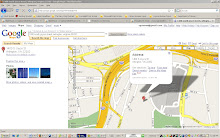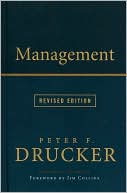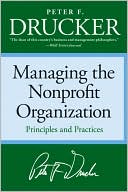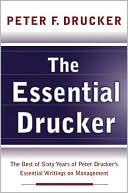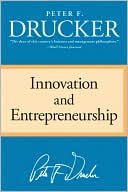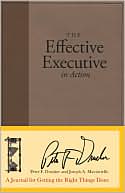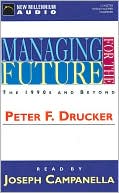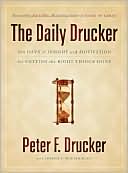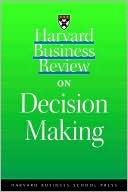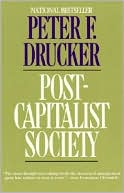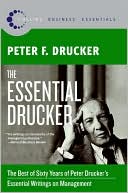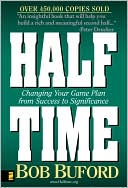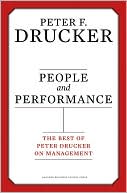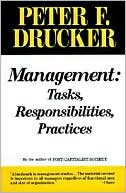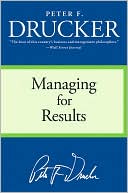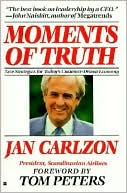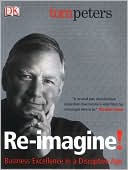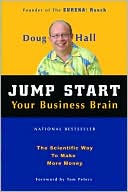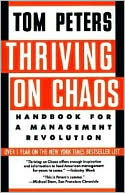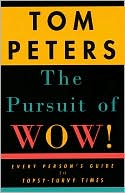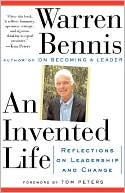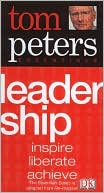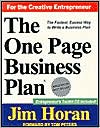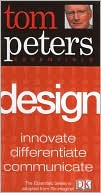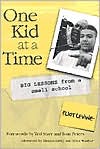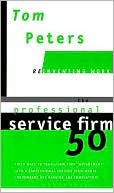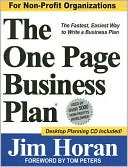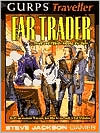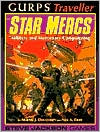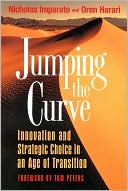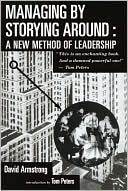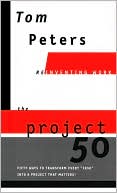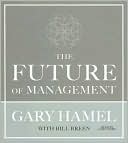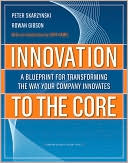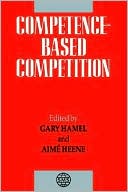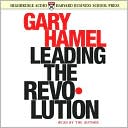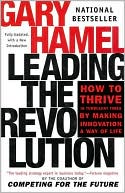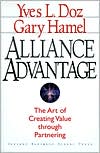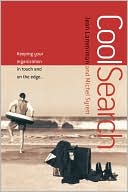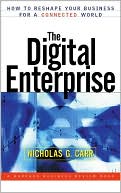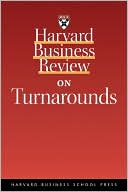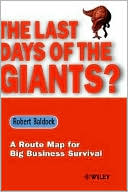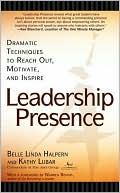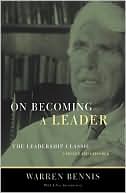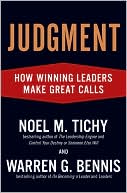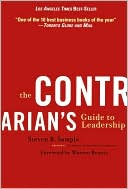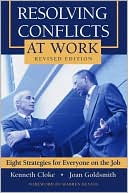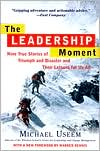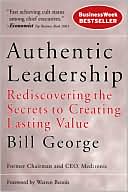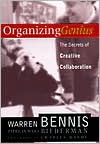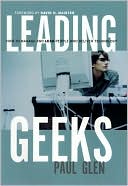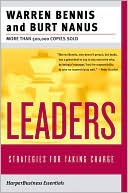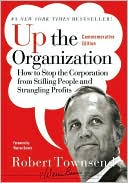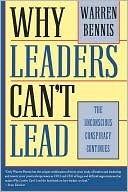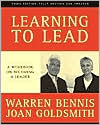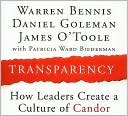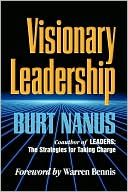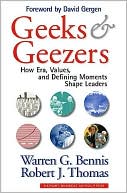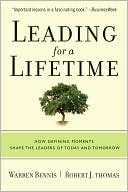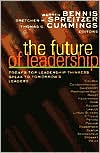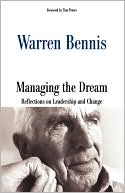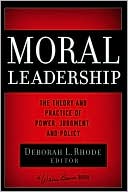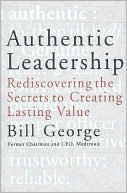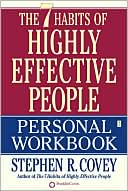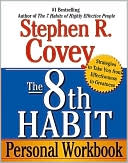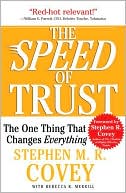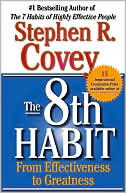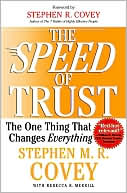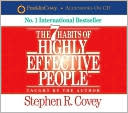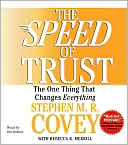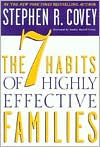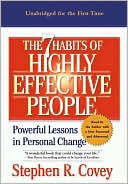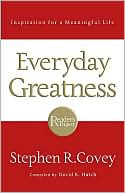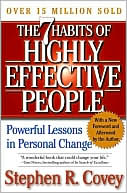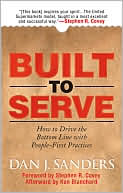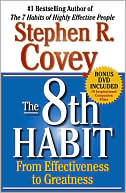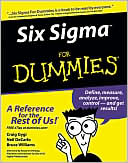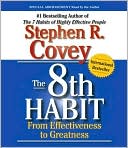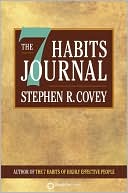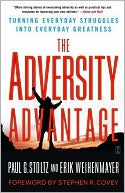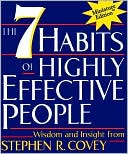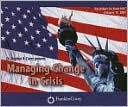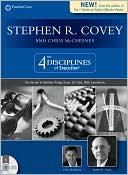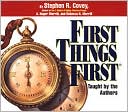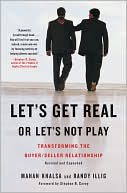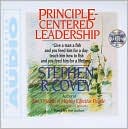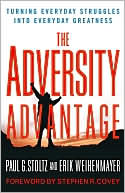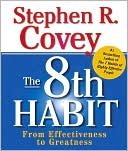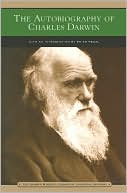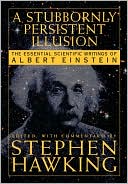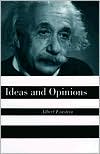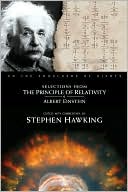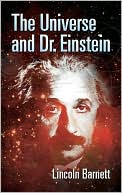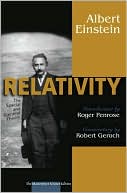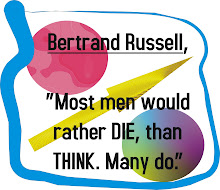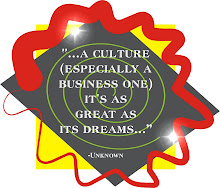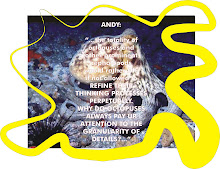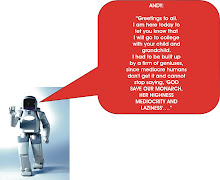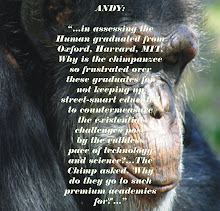Monday, September 29, 2008
SUCCESS PRINCIPLE / TENET # 26 - (metaphoric ideas for updated management practitioners).- Don't worry about being surprised by the unexpectable. Just carry on expecting the unexpectable, regardless of the implicated chaos. Create instability as the essence of your strategy. Keep in mind: a more volatile external environment requires a less stable internal world. Seek out substitutes and opportunities to increase productivity by measuring the mass used in your business today, and getting it to decrease every year. Respond with more rapid and varied adaptation.
SUCCESS PRINCIPLE / TENET # 27 - (metaphoric ideas for updated management practitioners).- Conduct thousands of tests of products, prices, features, packages, marketing channels, credit policies, account management, customer service, collections, and retention. Make informed but subjective judgments. Push ahead before the competition could catch up. Seize the opportunity--even when not really prepared.
SUCCESS PRINCIPLE / TENET # 28 - (metaphoric ideas for updated management practitioners).- Empower talented people. Accelerate talented people very quickly, because that's where you get the value. Place bets on future values. Cross boundaries, change jobs, and form new teams to meet evolving needs. Align with the business. Use good economic judgment. Be flexible. And be empathetic to your colleagues.
SUCCESS PRINCIPLE / TENET # 29 - (metaphoric ideas for updated management practitioners).- It's okay to break the rules in the right way. Going around doing randomly disconnected things. Develop all the peripheral relationships you need to be effective organizationally. Manage the connections rather than the structure. Also know how to hybridize.
SUCCESS PRINCIPLE / TENET # 30 - (metaphoric ideas for updated management practitioners).- Reach out to others with corresponding roles across the organization to learn and share ideas. Move around and support your colleagues when needed. Enable innovation by bringing DIVERSE elements together. Without these kinds of connections, DIVERSITY has little inherent value.
SUCCESS PRINCIPLE / TENET # 31 - (metaphoric ideas for updated management practitioners).- Empower others and yourself by the whole chaotic percolation of ideas at the bottom of the organization. Bear in mind: Empirical evidence, based on small tests, always carried the day. Attract very bright people with initial proof of concept, then plug them into your organizational structure.
SUCCESS PRINCIPLE / TENET # 32 - (metaphoric ideas for updated management practitioners).- Maintain common interfaces and cross-functional capabilities that allow work to flow and value chains to talk to teach other. Harvest the idea, then propagate it wildly before the mimicry of competition sets in.
SUCCESS PRINCIPLE / TENET # 33 - (metaphoric ideas for updated management practitioners).- Employ diversification to spread their risks. Be willing to take the risk of shaping the future according to your own design. Nothing ventured, nothing gained, but don put all your eggs in one basket. Beware of this: Discontinuities, irregularities, and volatilities seem to be proliferating. Remember: Without risks, life poses no mystery.
SUCCESS PRINCIPLE / TENET # 34 - (metaphoric ideas for updated management practitioners).- Seed, select, amplify, and destabilize the situation are the two management ideas for accelerated evolution. Don’t expect a perfect feedback system in a volatile environment. Don?t be excellent at doing; be excellent at changing, too.
SUCCESS PRINCIPLE / TENET # 35 - (metaphoric ideas for updated management practitioners).- Explore the extremes, where nonlinear effects kick in. Sometimes, the extremes contain pleasant, nonlinear surprises. Imagine things that engender loyalty towards your organization. Through experimentation with detailed measurements and discipline and logical analysis, you find profitable innovations.
SUCCESS PRINCIPLE / TENET # 36 - (metaphoric ideas for updated management practitioners).- Test things at the bottom of the organization that lead to big insights. Test, experiment, measure, and optimize. Institute hard-core analytic optimization. Architect your entire infrastructure to operate in real time. Let your account-management programs to be driven by experimentation.
SUCCESS PRINCIPLE / TENET # 37 - (metaphoric ideas for updated management practitioners).- Dream up programs that might be of value to customers, and then test them. A successful test often triggers other behaviors, and you should follow these with more new offers. Shift to roll-out, because ah of a sudden your competition get a preponderance of one product of my organization that they've never seen before.
SUCCESS PRINCIPLE / TENET # 38 - (metaphoric ideas for updated management practitioners).- Have a free flow of resources to where the value is. Rather than penalizing people who fail, praise them for their commitment and intentions. Reinforce the tolerance of risk and failure. Revise your best practices. Observe, orient, decide, act. First to fight now means first to learn.
SUCCESS PRINCIPLE / TENET # 39 - (metaphoric ideas for updated management practitioners).- Fly great distances, meet new people, and encounter new ideas. Have a freedom of thought, the passion for experimentation, and the desire to imagine your future. Believe in not commonly believed opinions.
SUCCESS PRINCIPLE / TENET # 40 - (metaphoric ideas for updated management practitioners).- It's about getting more from less. That's the true road to wealth. Focus on changes, challenges, and opportunities. Earn more while spending less. Reach a higher level of output. Pursue profit maximization. Remain competitive. Adapt to revolutionary innovations in technology and business efficiency the soonest. Craft value creating relationships. Establish guidelines, offer insight, and provide inspiration. Identify, analyze, and maximize your learning opportunities.
SUCCESS PRINCIPLE / TENET # 42 - (metaphoric ideas for updated management practitioners).-
Evaluate, identify, select, negotiate, manage, turn around, govern, implement, anticipate, and ensure success. Generate immediate cost savings. Realize a cash infusion from the sale of assets. Relieve the burden of staffing.
SUCCESS PRINCIPLE / TENET # 43 - (metaphoric ideas for updated management practitioners).- Be freer to direct your attention to the more strategic aspects of your job. Keep your logic compelling.
SUCCESS PRINCIPLE / TENET # 44 - (metaphoric ideas for updated management practitioners).- Destabilize in order to live closer to the edge of chaos. This means being agile enough to change as the environment does, but not so fluid as to lose its defining structure. Walk the walk as well as talking the talk of the Adaptive Enterprise.
SUCCESS PRINCIPLE / TENET # 45 - (metaphoric ideas for updated management practitioners).- A lesson: The word adaptation describes the interaction between an organism and its environment.
SUCCESS PRINCIPLE / TENET # 46 - (metaphoric ideas for updated management practitioners).-
TO BEAR IN MIND! But one thing an evolutionary and ecological perspective tells us for sure: If several major forces are at work, they will not progress in separate straight lines --they will interact chaotically, creating unforeseen changes.
SUCCESS PRINCIPLE / TENET # 47 - (metaphoric ideas for updated management practitioners).-Be willing to adapt very quickly, to pounce on an opportunity when you see it, to change the organization, to think about new developments, and to be always very open to any change in any direction.
SUCCESS PRINCIPLE / TENET # 48 - (metaphoric ideas for updated management practitioners).-You have to be the equivalent of selective forces in nature, which calls for a willingness to let people in the organization to explore, to flourish and develop.
SUCCESS PRINCIPLE / TENET # 49 - (metaphoric ideas for updated management practitioners).-Separate to promote independence, selfish thinking, and local solutions. Learn from each other’s mistakes and successes, and you’ll get better and be able to operate at a much more accelerated pace, based upon the knowledge that has been transferred.
SUCCESS PRINCIPLE / TENET # 50 - (metaphoric ideas for updated management practitioners).-Get your organization into a massive amount of knowledge and experience that creates a great breeding stock for subsequent ventures.
SUCCESS PRINCIPLE / TENET # 51 - (metaphoric ideas for updated management practitioners).-Explore continually evolving technology and applications, while also creating different units to exploit commercial opportunities not always closely related to the founding capabilities.
SUCCESS PRINCIPLE / TENET # 52 - (metaphoric ideas for updated management practitioners).-Replenish customers on demand. Take the client as an agent, and create an agent-based point of view.
SUCCESS PRINCIPLE / TENET # 77 - (metaphoric ideas for updated management practitioners).-Seek the hidden. De-learn the learned. Make the covert overt. Implement ipso facto.
SUCCESS PRINCIPLE / TENET # 78 - (metaphoric ideas for updated management practitioners).-De-peril your risks. Empower your financial risks to work for you. Hire them; get resigned from your bricks-and-mortars (a future not plausible).
SUCCESS PRINCIPLE / TENET # 79 - (metaphoric ideas for updated management practitioners).-Plan, lead, and manage.
SUCCESS PRINCIPLE / TENET # 80 - (metaphoric ideas for updated management practitioners).-Understand your business depth today. Develop better ways to service your enterprise in the future.
SUCCESS PRINCIPLE / TENET # 81 - (metaphoric ideas for updated management practitioners).-Before "outsourcing," NOW "Worldwide Sourcing' or "Competitive Sourcing."
SUCCESS PRINCIPLE / TENET # 82 - (metaphoric ideas for updated management practitioners).-Have fewer staff and run a lean operation. Favor those who leverage third-party relationships that don't tie up capital and consume resources.
SUCCESS PRINCIPLE / TENET # 83 - (metaphoric ideas for updated management practitioners).-Strategically enhance your organization's core competencies. Address any outstanding issue with your employees, unions, and the community. Find the lowest total cost or best value.
SUCCESS PRINCIPLE / TENET # 84 - (metaphoric ideas for updated management practitioners).-Recognize impact on internal operations. Capture the big picture.
SUCCESS PRINCIPLE / TENET # 85 - (metaphoric ideas for updated management practitioners).-Track benefits, realize quick wins, and motivate critical stakeholders to remain committed.
SUCCESS PRINCIPLE / TENET # 86 - (metaphoric ideas for updated management practitioners).-Early anticipation of changes can drastically reduce the time and cost of addressing them. Seek the quick win (that long forgotten in an ignored --but mission-critical-- flank).
SUCCESS PRINCIPLE / TENET # 87 - (metaphoric ideas for updated management practitioners).- Research assiduously which of the available external market capabilities fit best with your strategic objectives.
SUCCESS PRINCIPLE / TENET # 88 - (metaphoric ideas for updated management practitioners).- Articulate these management principles more precisely, implement them more systematically, and rely less on the intuition of a few gifted leaders. Don't write strategy, GROW IT. Don't think in terms of maximizing your share of the market but of maximizing your share of experience. Build an innovation laboratory capable of creating a steady stream of the new ideas to stay ahead of the competition.
SUCCESS PRINCIPLE / TENET # 89 - (metaphoric ideas for updated management practitioners).-Differentiate or die. Be mindful that improvisation is too important to be left to the fortuitous. Consider that life is sustainable through the unperceived and those universal laws that are unknown to us. Continuity is over-dead; it hasn't yet reincarnated. History will be reshaped by the sudden and sharp change, namely "frenzy volatility."
SUCCESS PRINCIPLE / TENET # 90 - (metaphoric ideas for updated management practitioners).-Launch your employees with confidence into a somewhat chaotic environment, knowing that they will direct themselves toward optimal performance to success. Instill in the staff a loose, self-organizing culture--in search of new opportunities. Motivate and develop others to learn to change to prevail. Sharing ideas, "...an eye is not an eye because you see it; an eye is an eye because it sees you..."--Antonio Machado.
Preferred Sites:
www.AgosBlogs.blogspot.com
www.AndyBelieves.Blogspot.com
www.AndyBelieves2.blogspot.com
www.AndresAgostini.blogspot.com
www.youtube.com/watch?v=tOHiKT127DM
Bill Gates: 2008 International Consumer Electronics Show...
Related LinksWebcast: Bill Gates at CESWatch the webcast of Bill Gates’ keynote address at 2008 International CES.•View the keynote (1 hr.)•View keynote highlights (5 min 47 sec)•Broadcast-Quality Broll: PressPass Broadcast NewsroomMicrosoft Chairman Bill Gates delivers his keynote address to the 2008 Consumer Electronics Show in Las Vegas, Nev. Jan. 6, 2008.Click for high-res version BILL GATES: Good evening. It's great to be here and see all the exciting things going on, the fulfillment of so many dreams and promises over the years. My first keynote was in 1994, a long time ago. That was a time when Windows 95 was just coming together, the Internet was just getting started, and it was within a few years of that that we entered the start of what we call the first digital decade. During that decade, the PC install base grew to over one billion machines. Broadband went from almost nothing to over 250 million users. Mobile phones achieved a penetration of over 40 percent of the people in the world. Digital photos moved from being a film-based activity to being something that's done through the power of software. And music went through that same transformation where today your ability to organize, select and communicate is driven fully by the power of software. The trend here is clear: all media and entertainment will be software driven. The first digital decade has been fantastically successful.The trend to have information wherever you want, to have Web sites get richer, and allow business activity as well as consumer activity, taking the full screen PC and making it better and better for those experiences, customizing things so people get exactly what they want. Ten years ago, I talked about some pieces that go into this. I talked about the AutoPC. Well, today we have Ford Sync, you'll get an update on that, which is exactly that vision. I talked about the handheld PC, and of course intelligent phones, including Windows Mobile Smartphones, are a huge part of the market today with software allowing them to do richer and richer applications. The idea of the TV meeting the Internet - well, we've really kicked that off in a big way with Media Room now connecting up to over a million users, and people for the first time realizing they can build content that's unique, a news show where you see only the things you're interested in, or taking rich complex events, like elections, and allowing people to navigate those in new ways.So we've made a lot of progress. The first digital decade has been a great success. And thousands of companies here have worked together - whether it's to do great hardware, great applications, driving the platform forward or the content that comes in from movies to videogames. Now, this is just the beginning. There's nothing holding us back from going much faster and much further in the second digital decade.Before I get to that, I want to talk about the fact that this is my last keynote. It's the middle of this year, in July, that I'll move from being a full-time employee at Microsoft to working full-time at the foundation, as you heard. So this will be the first time since I was 17 that I won't have my full-time Microsoft job. And I'm not really sure what that last day is going to be like. It could be a bit strange, you know - what do you do on your last day? So I have some friends to help me prepare for that. So we got together and did a little video. So let's take a look at that.(Video segment.)I really don't think it's an accurate representation of what's likely to happen, but it was fun to put together. The transition, in fact, has been going very well, with Ray Ozzie and Craig Mundie stepping up to take over my full-time responsibilities. Of course, after the transition I'll have a few projects that I pick, that are still about the magic of software, including things like how software can advance education, and how software can advance healthcare around the world.The Second Digital DecadeRobbie Bach, Microsoft President, Entertainment and Devices Division, speaks during the 2008 Consumer Electronics Show in Las Vegas, Nev. Jan. 6, 2008.Click for high-res version So the foundation of the second digital decade, the advances taking place there will be very, very important in that thrust. The second digital decade will be more focused on connecting people. It will be more focused on being user-centric. Microsoft will deliver platforms that will let people build applications. Those applications will run not only on the PC, they'll run up in the Internet, or in the cloud, as we say, on the phone, in the car, in the TV. The applications will use the best of rich platforms and those Internet services.When we talk about services, we mean a huge variety of things, and things yet to be invented, the mapping services, the payment services, the friends lists, and storage that you can have in a very effective way up in the cloud itself. These services will span work and business. The personal computer has always been a device that spans that boundary. That's been part of the beauty of it. So even things that are incredibly oriented to the business side we'll be able to up-scale, and simplify them with cloud-based approaches.So a lot of big advances will underlie this new class of applications. Things that we haven't tackled yet, like the ultimate change to all of TV, or to reading, or to healthcare and education. Those will be enabled by these elements. The three key elements I'd highlight are first, high definition experiences everywhere. Screen technology is getting better, not just the high definition displays, but projection that will let us project onto every wall. Your desk, we won't just have the computer on the desk, but in the desk, so a meeting room table as you're collaborating, and the living room if you want to briefing up and play games with something like a Surface, or organize your photos. It will just be there, and easy to manipulate, easy to change and have multiple people connect up.The quality of the rendering, whether it's playing something like a game, or walking through the downtown with a Virtual Earth type concept will be very, very rich. 3D environments will exist for many of the Web experiences, walking through a store, meeting people in a social 3D environment. So we'll apply high quality video, high quality audio in a very pervasive way.Second, all of these rich devices will be service connected. And so getting the latest software, the browsing applications, and getting your data, you'll just take that for granted. The idea that when you take a photo that it shows up in the place that you'd like it to show up, that would be extremely simple. No longer will users have to bridge between the devices, and they're the ones who have to remember what's where. By having essentially the master of what's going on stored up in the cloud, things like docking up, connecting, searching across devices will be very simple, and the information, of course, can be shared across many users in a very strong way.In fact, if you just pick up the device and authenticate who you are, then you'll connect up to your information. So when you get a new phone, or want to borrow a device it will be a very, very simple thing to be up and running in a strong way.As you're moving around, even your activities that you want to have handy, with stills and motion, and so organizing memories that you have, the memories of your kids growing up, and having the system find what's relevant to you, presented in a rich way, that digital memory application will be one that is broadly used and very important. And yet, today without these capabilities, it's something that you can't achieve. The devices will know your context, they'll know your location.Finally, the third element, perhaps one that people underestimate the most, I would say, is the power of natural user interface. The first digital decade was largely driven by the keyboard and the mouse. Just in the last two years we've started to see the emergence of other modes of interaction. Touch on the Windows PC, touch on the iPhone, the Surface device that we're talking about. We started to see speech, - the Tellme capability - built into the phone, the Ford Sync, where you get to talk and interact with your media or your phone capabilities.The reaction to those natural interface implementations has been very dramatic. People are very interested in a simpler way of navigating the information. So the pen, with ink, touch, visual recognition, all of these come together with the other elements to create very new experiences. Gestures so that you can get things done, sitting in front of the TV set. So we're just at the beginning of this, and this is something the software industry will build into the platform, so individual developers don't have to go off and do that complicated work.Even areas where we haven't thought about software empowerment, like the retail experience: walking in and picking a product you want to customize, or home automation is finally, I think, simple enough that we can bring it forward with natural user interface. So some key elements that are very different, and show that the long-term research and innovation that we've done over the previous years will come together and be drivers for these next ten years.A key building block certainly for Microsoft is the Windows platform. We'll evolve that and use it as really the centerpiece building block. This actually was an incredible year for PCs. PC sales grew over 13 percent. Of course, that's a really gigantic base, and it's been amazing to see that. Next year, again, the prediction is for double-digit growth. A year ago, we launched Vista. I'm pleased to say that we've got over 100 million people using Vista now, and that's a very significant milestone for the kind of applications development, and special hardware work that we think is very important. We have great partners building neat new form factor PCs using unique capabilities. A lot of these are portable devices. A lot of them are far more stylish than anything you've seen before, smaller, fitting into new ways that people use personal computers.We have online services. We and many other companies are seeing incredible growth in those. For us, our Windows Live now, over 400 million people using those services, including the new version rolled out a few months ago. Windows Mobile, over 10 million new users last year, and double that in the next year. So quite a variety of form factors, and a growing platform there because as the capabilities of the phone have now gotten so rich, the breadth of applications that you want to run there is getting larger and larger. And that is certainly an environment where the input has been a limiting factor, and the new platform capabilities will really allow you to do applications that were impossible before.Connected Experiences: Windows Vista, Windows Live and Windows MobileI wanted to give you a quick glimpse of some of the things that excite us about the latest developments with Vista Live and Mobile, so let me ask Mika Krammer, who is the director of Windows Product Management, to come up and show us some of the highlights of what I've been talking about. Welcome, Mika.MIKA KRAMMER: Thank you, Bill. (Applause.)My life is my family, my friends, work, my lifeline is Windows. Windows Vista, Windows Live, Windows Mobile connect and integrate my life in a way that's simple and familiar. Gone are the days of multiple sign-ins, and multiple contact lists, multiple hassles. With my single Windows Live ID all my services, my e-mail, my calendar, are integrated, they're personalized, and they're connected so that with one single Live ID they all come to life.Tonight I want to share with you some of what's fresh and new, some of what helps me stay connected. I have to tell you, one of the things that I really struggle with is making sure that everyone is in the right place at the right time. With the new Windows Live calendar, I can overlay my mom's calendar and my husband's calendar so that we can organize and plan.I'm throwing a party for my friend Gina, and I need to see if my mom can help and take the kids. I see here that she's available, which is great. I am sure that she would be more than happy to take my three very well-behaved boys. Now I want to see who can come to the party. Here's a new Windows Live event. I've used it to invite guests, keep track of who can come, and I'm really entertained by reading the very creative excuses from those who can't. I can also go back on this site, and everyone who came to the party can come back on this site, and we can share photos with everyone. There's only one problem in that I forgot to invite Bill. Easy fix, all I have to do, because I've logged on with my Windows Live ID, I don't have to remember everyone's e-mail, I don't have to reenter everyone's e-mail, because it's right here. Select Bill and send him a quick note - bring your snowboard.I also want to share a picture of our rendezvous spot and where we're going, and I know that picture is somewhere here in my computer. If you're like me, you know there's some picture somewhere on your computer, but sometimes it's kind of tricky to find the one you want. Well, with the Windows Live Photo Gallery, I can find what I want and edit in an instant. Check this out. I've got multiple pictures of the same location. I can select them all, and very easily create an amazing panoramic photo. But if you're like most people - snapshots in a shoebox - so the pictures are in your computer, on your phone, in your camera, no one gets to see them. With Windows Live, it's so much easier to share. Check that out, isn't that something you'd want to share? (Applause.)All right. All I have to do is fix it up a little bit, take out the rough edges, and I can share it in e-mail, or I can share it on the Web. I can either publish it on Flickr or to my Windows Live Space. I think I'll go to my Windows Live Space. Sharing pictures has never been easier. It takes me to my Windows Live Space, and it will be updated immediately for everyone to see.Now in terms of my Live Space, I also want to get people excited about the trip, and so what I want to do is be able to provide a picture of Whistler, and snowboarding. With Windows Live video search, it's a snap. All I have to do is hit Whistler and snowboarding, and I've been checking out these videos, and rather than have to download every single video every time I want to see one, all I have to do is run my cursor on top and it's there in an instant. All I have to do is now upload my site, and I'll do that later.When I'm on the go, Windows comes with me. With Windows Live Mobile, I can search the Web, I can check out local traffic, I can instant message, and I can share photos. Recently, I just with one click sent this photo from Vegas up onto my Live Space. You know, now the old adage that what happens in Vegas stays in Vegas no longer applies, it's up there on my Space for everyone to see. We all lead busy lives, and quite frankly we all could use a little help. With Windows Live, Windows Vista, Windows Mobile what's familiar is now integrated and connected, what's achievable is redefined.Thank you. (Applause.)Microsoft Surface in RetailBILL GATES: Well, I got invited to that snowboard thing, so I've got to buy one of these things. And so I'm in a snowboard store, and what they've got for me is a Microsoft Surface. And that's going to let me customize the board, let my personality show through. Of course, what it is is just a Windows PC with some camera hardware and some special software that came out of our research work that recognizes any gestures that I make. It recognizes objects, it recognizes multiple fingers. It's very, very rich. So I can take this board and say, okay, that looks good, I really want to see what I can do to the top and the bottom, and it's just plain right now, so let's design my own. I can take some boards that other people have done and thought was good, pick one of those and bring that down, put that pattern on my top, and that's the old free ride, looks good.Now let me select some of these decals, I'll take that snowflake, if I want color I just say, ’OK, this is a color wheel, slide around, that looks good.’ Now, you know, I don't know what size I want, but let me move it on here so I can see how it looks, put it right there, perfect. So that side has probably got enough on it. Let me go to the other side and actually put a signature, so when I'm in the air and people are down below me, they'll know what's up there. I'll take that and size that, and put it over here on the bottom of my board. There we go. I've got something that looks pretty good. In fact, let me finish by putting some bindings on here, so I know exactly what that's going to look like.And I think that's a good-looking snowboard. But really, before I actually buy it, I would like to show it to my friends. So I simply put my phone down - that gets recognized - and I get the choice of either just putting on the phone, or putting it up on the Internet on Windows Live. I'll select Windows Live as my option there. It goes up and now it's going to access it, come back and do more work on it. So it's been a fun, simple retail experience. I didn't need to learn anything to be able to use that application.We see Surface showing up in many, many different situations, maybe even here in Las Vegas as a new flexible interface.NBC, MSN to Bring the Olympics to the Web with SilverlightAnother big announcement for us last year was the introduction of a Web technology called Silverlight, the ability to do video and animation in a very rich way. Silverlight came out with some neat capabilities shipped in its first version. It's gotten a great response. We see it as the runtime that will let people do new media experiences. It brings the design world and the rich development tools world together on top of a great runtime that we will make pervasive. I'm pleased to announce today that we have a perfect partner to showcase Silverlight, and that is that NBC has chosen Microsoft, the MSN Group, as its exclusive U.S. partner for online video footage for the 2008 Olympics. And what we'll do is, we'll take the 3,600 hours of all of the different events, and we'll make it available live, we'll make it available on demand, and we'll let you customize so that you can see what you're interested in, be alerted of the different things taking place. And this type of live event programming is something MSN has gotten very good at with events like Live Earth. And so it's going to let us illustrate why TV is going to be very different. Events like this in the broadcast format just aren't as satisfying, not as great as we'll be able to make the Olympics.Let's go ahead and hear from NBC their perspective on the unique things we'll do together.(Video segment.)Well, I'll certainly enjoy the Olympics as a spectator. I can watch all the different sports, and all the things that really grab me. So I think that a partnership there is going to be a very important one.Now I want to invite on stage Robbie Bach, who is the president of our Entertainment and Devices Division. They're doing some amazing things to drive this vision of connected experience. So let's hear from Robbie about how that's going.ROBBIE BACH: Thanks, Bill. Good to see you.Robbie Bach: Connected Entertainment with Windows Gaming, Xbox and ZuneSo it's good to be here again to talk about connected entertainment. Last year I described connected entertainment to you as the process of enabling people to get their video, their music, their gaming on any device and any place where they want it. I want to talk about the successes we've had in 2007 in delivering on that, and also give you a peek at some of the things that are coming in the future to continue to building connected entertainment.First we'll start with gaming, and in the past year with the release of Vista, Windows gaming has continue to grow and be strong. Vista was a great operating system for gaming. It's doing a fabulous job there. And Windows is far and away the largest gaming platform in the world and continues to grow.Now, Xbox on a worldwide basis has had tremendous success, as well, 17.7 million consoles shipped to date. And we are on track this year in the U.S. to have the biggest year ever in videogame history in the United States. In the U.S., through November, we did US$3.5 billion of business. That's $1 billion more than Nintendo did on the Wii, and it's $2 billion more than Sony did on the PS3. And if you look at spend on Xbox 360 games, it's more than the spending on Wii and PS3 games combined. So our Xbox business is in a very, very good place.In addition, we continue to grow on Xbox Live, the online gaming service that supports Xbox. I'm excited to announce tonight that we have passed the 10 million member mark for members on Xbox Live, that's six months faster than we expected to get to that number. So a tremendous momentum around what's going on with Xbox Live. Certainly, a lot of the time people on Xbox Live, they're playing games, but they are also enjoying TV and movies, and we have two very important announcements on that front tonight, as well.DVR Anywhere and Connected TV Experiences: Xbox, Media Center and Media RoomFirst, I'm excited to announce that ABC and Disney will be bringing their TV shows to Xbox Live this month. On Disney that means shows like Hanna Montana, High School Musical, and on ABC top rated shows like Lost, Grey's Anatomy, Desperate Housewives and others. This is a tremendous opportunity for us to continue to expand video content on Xbox and bring more consumers into the Xbox Live experience.In addition, we're not only adding in the TV space, we're also adding in the movie space. We're excited to announce tonight that MGM is bringing its library of films to Xbox Live. This includes classics like Rocky, Terminator, Silence of the Lambs, Legally Blonde and many more. Xbox Live, when we're done integrating this content, will offer more than twice as many hours of on-demand, high definition content as any cable or satellite provider. Over 35 studios and networks are supporting us now, and it's quite clear that online distribution is going to be a powerful force in the future of video.Our approach to television is not just through Xbox, of course. Media Center continues its success and is on the vast majority of the 100 million-plus Vista PCs that are in the market today. And in addition to having Media Center on the PC, it's very important that we increase what's called the Extender technology, this is the ability to take content that's on a Media Center PC and extend it through a TV. Now, Xbox 360 is the first place we got started with the Extender technology, and that's been quite successful. Tonight we are announcing that Samsung and HP will also be introducing new extender devices that connect the TV. And HP will be the first to build Extender into their new high definition TVs with their Media Smart TV. So that's on the Media Center side.Finally, in the TV space we have our product Media Room. Now, Media Room is our IPTV service that delivers high definition TV, DVR, and interactivity through top service providers like British Telecom, Deutsche Telecom, AT&T, and 17 others around the world. To date we now have 1 million TV screens on our Media Room service, and that number is advancing very, very rapidly. We also have some key announcements in the Media Room space tonight. First is a technology which we call DVR Anywhere. This is the ability to record on your Media Room system content in one place, and distribute it to other TVs around the house that are on the network.We also are announcing some interactive applications we're developing with Showtime, TNT, and CNN. This will give you the ability, for example, in a NASCAR race to product your view of what the race was like. So I can pick car number 35, or I can go into the pit and watch car 22 and its pit stop, and produce that interactive experience myself. With CNN we're doing an application around the election, and the ability for people to customize and understand the political situation, and the election process in the United States, in a very interactive way on the TV.The final announcement around Media Room, last year here we talked about Xbox 360 being a set top box for the Media Room service. This year we're excited to announce that British Telecom will be the first operator to provide that capability, and you'll be able to buy an Xbox 360 through BT, use it as a gaming console, as well as a set top box on your TV.When you look at all of this together, what we've done on Xbox and Xbox Live, what we're doing on Media Center, and what we're doing in Media Room, it's abundantly clear that building great, connected TV experiences is not a hobby for Microsoft. This is something we take quite seriously, and we think we can build a great business with great products for our customers.Music is Social, Music is Mobile: Zune and Ford SyncNow, when you go beyond that to the music space, I want to talk briefly about Zune. Now, the new versions of Zune that came out this fall are doing very, very well. We've had fabulous response to the product in reviews, and I think it's quite clear we're becoming the clear alternative to the iPod. With capabilities like subscriptions, Wi-Fi, and a social experience we think we can differentiate ourselves in this space, and we think there's plenty of opportunity for that market to grow.In fact, we've been so pleased with the results in the United States for the first time we will begin selling Zune outside the United States in Canada this spring, and there will be more opportunities for us to expand in the future.I will say that music is inherently a social experience, and we want to build on that social experience. And that's why we introduced this concept called Zune Social. Now, Zune Social is in beta right now. It has about 1.5 million people who have tried the service out initially, and we want to give you a chance to understand what Zune Social is. So I want to invite Molly O'Donnell on stage to show us how consumers can discover music through Zune Social.Molly? (Applause.)MOLLY O'DONNELL: Thank you, Robbie.ROBBIE BACH: So take us through Zune Social.MOLLY O'DONNELL: Sure, welcome to the Zune Social. Right here, let's just take a quick tour, you'll see that I'm on my personal profile page, on my Zune Social site. And at the centerpiece of the Zune Social is this Zune Card. It's your personal Zune Card which you can personalize like I did with my Zune Tag, my Zune Picks, and I even have some background wallpaper here with one of my favorite pieces of art work. What the Zune Card does is really tracks my most listened to artist, my most listened to song, and of course, I've tagged some of my favorite artists.ROBBIE BACH: So it's actually tracking everything you're doing on your Zune, on the PC, or on the device?MOLLY O'DONNELL: That's right. So my friends can see that Ted Leo, or Rufus Wainwright, or Band of Horses are some of my favorite bands. And it does that in real time, and in a dynamic way. So it's really cool for you to track, but mostly for your friends to track.The community has actually embraced this, and taken this to the next level, and they've made an application already that you can simply post your Zune Card to your Facebook page where you may spend a lot of time, or any social networking or blog site.But the really cool part of the social, it's all about people-powered music discovery. And what I mean by that is I'll show you. As I scroll down here with my friends list, you can see my friends, you can see what they've been listening to, the last three tracks, Edie Pres, I think this is you.ROBBIE BACH: So, let's go take a look. We should take a look at my page, and see what's been on there.MOLLY O'DONNELL: OK, great. So, here you are, and I can look down the right-hand side of Robbie's page, and I can discover his most recently played songs.ROBBIE BACH: Clearly some of this music is dating me a bit.MOLLY O'DONNELL: Well, it's there for everyone to see.ROBBIE BACH: There you go.MOLLY O'DONNELL: We have your favorites and your most played artists. I notice up here some of your favorites include Jack Johnson, John Legend, The Fray. The top of the list is The Shins, and The Shins are a cool band, and they happen to be huge Xbox 360 fans. So, I'm going to jump to their site. So, what we have here is the Zune social site for The Shins.ROBBIE BACH: So, they've created their own card for the band.MOLLY O'DONNELL: That's right.So, what this is, is you can see their albums, but you can also see the top played songs from the Zune Social site - and you can see the top fans of The Shins. You can see here this is yet another act of discovery, because you can say this fan that likes The Shins also likes The Silversun Pickups, and The Decemberists. If I wanted to, I could go check them out, because maybe since I like The Shins, I'll like them too. Again, a really cool act of discovery; you can spend a lot of time here.But we don't have a lot of time, so I'm going to just jump up here. You can see Sleeping Lessons. It's a bit of an old song, came out last year, but I've been meaning to buy it. I could either sample a track or simply click to buy. What that does is it closes the loop from discovery of a song to purchasing. So, you see here that I'm in Zune Marketplace, and with a click of a button I can download and then synch it to my Zune, and it's all set.ROBBIE BACH: So, now you've seen the full circle of people exploring, finding new songs, finding friends, having an experience, and ultimately buying and helping to build the music business in a stronger way.MOLLY O'DONNELL: That's right. And I don't know about you, Robbie, I'm a fulltime working mom, and I don't really have a lot of time to be listening to music on my PC. So, when I do listen to music, it's on my device and on the go and in a car. So, if we had a car to show you --ROBBIE BACH: Well, I think we can probably accommodate you. So, let's move from Zune Social and we'll talk about the automotive space a little bit.Microsoft launched our Microsoft auto product in Europe with Fiat, and they've done a fabulous job running our software, and then last year we announced a partnership with Ford to produce what is called Ford Sync. That's powered by our Microsoft auto software.In the United States Ford expects to ship nearly a million Sync-enabled cars next year, and they are expanding it across their line of Ford, Mercury, and Lincoln cars, including this new 2008 Lincoln MKS.Molly is in the car, and I'm going to jump in with her, and we're going to give you a sense of how this works.OK, take it away, MollyMOLLY O'DONNELL: All right. So, when I'm driving, like most people, I want my hands on the wheel, and my eyes on the road, but I also want to do a little bit of multitasking. I want to be able to access all my devices. With Sync you can just that.So, for example, the Zune that I was just talking about, or it works with any MP3 player, easily plugs into the console here, and the thousands of songs that I have loaded here are all synched to the car.Additionally I have here my Windows Mobile phone, and it will work with any Bluetooth-enabled cell phone, and all my hundreds of contacts that I want to call, my friends, my family, are all automatically downloaded and synched into my car for easy hands-free. All you need to do, you can do all of these things while driving, just with the sound of your voice.ROBBIE BACH: So, why don't we try -- let's try playing a track.MOLLY O'DONNELL: OK, great. Let's do that. Maybe you can pick one of your favorite songs.COMPUTER: Please say a command.ROBBIE BACH: Play track Cars.COMPUTER: Playing track Cars.(Music plays.)ROBBIE BACH: I like that. Now, I could do the same thing with a phone where I would say call a person, call their work, call their home, call their cell phone number, and again get that great easy experience using voice to control the system.MOLLY O'DONNELL: Absolutely.ROBBIE BACH: Fantastic.MOLLY O'DONNELL: Simple as that.ROBBIE BACH: Thanks.So, the other exciting thing about what's happening in this auto space is that that system is now upgradeable. So, one of the things that Ford is going to offer is a new upgrade to Sync, which they call 911 Assist. Basically the way 911 Assist works, if the airbag deploys on the car, the software will tell you, I'm going to make a 911 call. And unless you stop it, it will then automatically call 911 so that emergency services arrive to help you out. So, that gives you some idea of what's going on in the car space. Now, when I'm here in Vegas, we don't actually spend much time in the car, because it's actually quite difficult to get around that way, so we spend a lot of time walking, and I'm mostly on my mobile phone. So, I want to talk a little bit about Windows Mobile.Now, we all know that phones outsell PCs by about four to one, and Windows Mobile is a leader in that space. Phones are going to be a big platform. PCs are going to continue to be super important and continue to grow, but at the rate of expansion for phones, it's going to be very important for the future.Windows Mobile today outsells Blackberry, outsells iPhone. We're on pace this fiscal year to sell 20 million phones, which is almost double what we sold last year, with Windows Mobile software on it.Mobile Search and TellMe Finds What Need from the RoadNow, one of the huge growth areas is in mobile search, and voice is really going to be the natural way to use a phone with mobile search. Our TellMe service is the leader in this space with over 2 billion voice searches last year, mostly through the 411 service. In the future they're going to introduce something called Say and See, and I want to give you a chance to see that. So, I want to invite Molly back up on stage to show us that service. Molly?MOLLY O'DONNELL: Great. So, it's very simple, easy, and powerful, and let me show you how it works. You see that I've launched TellMe, and it's already identified that we're here in Las Vegas. So, if I want to search for a local business, say like movies, I can just do that. Let me show you. Push the talk button: Movies.ROBBIE BACH: Now, because it has GPS, it's going to go out and find the theatres in the area around here, correct?MOLLY O'DONNELL: It did, and it is searching right now. It's brought up the list of the closest theatres. I see here that the UA Showcase one is only about a mile away, so I'm going to select that.ROBBIE BACH: Oh, we've got to go see Sweeney Todd. We have to see this. So, get us some tickets.MOLLY O'DONNELL: OK. So, not only is it showing you show times, but it's also showing you all the selections. So, let's get Sweeney Todd. Buy what. Two tickets for Sweeney Todd at 9:20. So, searching. I think at 9:20 we should be good to go.ROBBIE BACH: Now, do I get to go to the movie at 9:20? Am I part of the invitation?MOLLY O'DONNELL: Definitely.ROBBIE BACH: Oh, that's good, that's good.MOLLY O'DONNELL: Anybody in your contacts. This is the cool part about it is you can share with anybody in your phone contacts list, and you can just press "share" and again do a press to talk, and you'll have a text message on your cell phone. So, send to Robbie Bach.ROBBIE BACH: So, now it's going to send that to my cell phone, and I should be able to pick that up.MOLLY O'DONNELL: So, it's finding you. There you are. I've shared it with you, and you should have a text waiting for you with all the information.ROBBIE BACH: Perfect. Thanks very much, Molly. That's awesome.MOLLY O'DONNELL: Thanks a lot. (Applause.)ROBBIE BACH: So, now let me come back here, and you're going to see that on my Windows Mobile phone here I have the text message here, received it from Molly. I'm going to select enter, and notice it's two tickets for Sweeney Todd, and I've got it there. I'm going to scroll down here, and go to that link. There is this free trailer for Cloverfield from Paramount that I want to look at, so let me scroll down into that. Go to that Web site, I can scroll down here, there's the exclusive trailer. Now I can play that on my Windows Mobile phone. So, you're going to see that trailer play here. (Video segment.)ROBBIE BACH: So, this is another fabulous way for our connected entertainment experience to be seen.Now, the exciting thing and the interesting thing about that scenario is it's an example of how advertising campaigns can play a role in providing entertainment in new ways and with new economics. This is an example of places where we're working with partners like Paramount, Best Buy and Verizon.When you add that to things we're doing in the broader advertising space with the acquisition of aQuantive and recent deals we've done with companies like Viacom, Microsoft is taking a very serious approach to the advertising space, and I think we're going to be quite successful there.The mobile advertising market alone is going to be about $11 billion in 2011, and I think with all the work we're doing we're very well positioned to take advantage of that.Now, just to wrap that all together in connected entertainment, I'm very personally excited about what we're doing in connected entertainment, and think we're the best positioned company to deliver on that vision. We're number one in gaming. We're the leader in connected TV across what we do with Media Room, Xbox Live, and Media Center. We're being very innovative in the approach to Zune and bringing new social experiences. You've seen the great work we're doing in the car and with car infotainment. And we are taking advantage of new opportunities in mobile to continue to build that great business. All of this is being done in the context of building community services and new advertising and business models.When you take all of that together, it's clear that software and services are going to be key to connected entertainment, and Microsoft is poised to deliver. Thank you. (Applause.)Now, we talked about where we are today, and before our big finale, I do want to bring Bill on stage to show some things in the future and where we're going to go. So, Bill, why don't you take us through a little bit of the future of what you see happening?Gates: Looking Ahead to the Second Digital DecadeBILL GATES: Well, the software advances, even very advanced things like visual recognition will be in the phone platform. This is being developed by the Microsoft Research group. It's fairly new stuff.ROBBIE BACH: You can tell it came from the lab; there's no question about that.BILL GATES: Hot out of the lab.So, I've got this unusual device, but it's connected up and running that visual software.So, as I walk around, as I see different people or see sites, it will actually help me out. So, as I walk up to you, the device reminds me that you owe me some money. (Laughter.)ROBBIE BACH: Yeah, we're going to come back to that $20 in a little bit. That's a disputed amount. So, we'll come back and see on that.BILL GATES: Well, that's very handy. Of course, we could go out, walk around outside. We've got this picture here. So, I can do that without leaving the stage. But as I point up at this theatre, that's another thing it will recognize. In fact, as soon as it does, it will let me know what's playing there, maybe what tickets are available, what kind of seats.ROBBIE BACH: It's also running an advertisement that sort of plays off what's at that theatre, so again interactive business model.BILL GATES: Then as I'm happy with that, I look around some more, and I've got a restaurant I'm going to that is somewhere down here, I'm not even really sure, but my phone knows that's where I'm headed, recognizes it, shows that to me, and offers to show me the path down there, guide me.Now, this uses the Virtual Earth 3D visualization that we're doing that is just fantastic. So, you see all the buildings and sites as I walk down there, so I've got that clearly in mind, or I could go back and step through that. I see the current reservation and the menu and everything. I think I'm set for that. Then if I point to another location here, I'll point to the Venetian, and as I do that, it reminds me, of course, I've got this keynote that I'm doing, says Steve is here, but he's playing the slots.ROBBIE BACH: Well, that's pretty typical, don't you think?BILL GATES: Yeah, I guess.ROBBIE BACH: Now, it also says, Bill, that there is some CES history there. You've done a number of keynotes here. There must be some amazing memories and histories from that.BILL GATES: Yeah, one of the great things about this type of device, which this will be in the phone that you carry around, its ability to acquire the videos, the stills, the calendar and organize those by using that information so they're very easy to access, will be pretty phenomenal.So, if I just click here on that history, we should be able to call up the different kind of clips that were pulled together when I did the CES keynote, and see a way that those have actually been organized.So, when it starts out, I can see all the different media pieces, kind of a slick 3D interface, and then at first it starts with media, people, and different information I've presented.Another way we could look at it is we could see what the celebrities were.ROBBIE BACH: Oh, this is the fun part of your keynote is who the celebrities have been in them, right?BILL GATES: You bet. ROBBIE BACH: I remember The Rock. I was there for the 2001. That was the launch of Xbox, right?BILL GATES: Yep.(Video segment.)BILL GATES: We can move on from that one. (Laughter.) Let's see, we've got quite a few here. Maybe we'll click over and call up ConanROBBIE BACH: This is the year none of the demos worked, I believe. That was a memorable year, wasn't it?BILL GATES: That was great. (Video segment.) Conan was hamming it up there. (Laughter.)ROBBIE BACH: Now, on the right there, Bill, it looks like there's something that looks like it's sort of a TV barcode. What's going on there?BILL GATES: Well, we'll see how quick this thing can do its job. Click on that, and because it does such brilliant acquisition, we even see the keynote that was just given, and a little clip of that.ROBBIE BACH: So, it's recording it as we go through this right now?BILL GATES: That's right. It knows that I was at the keynote, and the idea is that you're not going to have to take a lot of steps, manual steps, that this would just happen for you, and so all your past information is there and easy to view in a really neat way.ROBBIE BACH: So, that's an awesome view of what we're doing today, what we're doing in the future, and where we think this can go.But I do have one last challenge. Now, we have this $20 that I supposedly owe you, and I've got one last challenge for you. I want to see how good you are in Guitar Hero III. (Laughter.)BILL GATES: All right. I played over the holiday. You can go ahead and bring it on.ROBBIE BACH: Yeah, you've been practicing. I figured you've been practicing, so let's play us some guitars. Put our guitars on here. (Cheers, applause.) This is sort of like delivering some dueling banjos I guess. We'll take a look at that now.Actually, Bill, since I know you're competitive, and I know you've been practicing, I actually decided I need to bring a ringer to help me. So, I want to invite on stage Guitar Hero champion, Kelly Law-Yone, better known by her gamertag as TipperQueen. She's going to be my entrant into the contest. (Applause.) Take it away.KELLY LAW-YONE: Thank you, Robbie, for having me out here in Las Vegas. Let's show Bill how to really rock out. (Guitar Hero III contest.)(Cheers, applause.)ROBBIE BACH: She's pretty good. So, I don't think she missed a note, so I think somehow you might owe me $20. You're going to have to bring it on hard to be able to beat that. BILL GATES: Well, it turns out I've got my own ringer here. (Laughter.) That's right, I've got one of the Guitar Hero III gods himself, Slash from Velvet Revolver. (Cheers, applause.) (Guitar Hero III contest/cheers, applause.)BILL GATES: I think you still owe me.ROBBIE BACH: Well, Kelly, I hate to say it, but I think I owe him the 20 bucks. I think he once again got me. Ladies and gentlemen, thank you very much. I will see you again next year. Thanks again. (Cheers, applause.)
Preferred Sites:
www.AgosBlogs.blogspot.com
www.AndyBelieves.Blogspot.com
www.AndyBelieves2.blogspot.com
www.AndresAgostini.blogspot.com
www.youtube.com/watch?v=tOHiKT127DM
Published on November 03, 2007
Arlington, Virginia 22222, USA
For more information on Andres Agostini,
please log onto: www.AndresAgostini.blogspot.com/
© 2007 Andres Agostini. All Rights Reserved.
Andres Agostini is a Researching Analyst & Consultant & Management Practitioner. Topics subjects of study and practice and survey are Science, Technology, Corporate Strategy, Business, Management, “Transformative Risk Management”, and Professional Futurology. He has 28 years of professional experience, dealing with complex business settings.
Via this Web site, Andres Agostini shares his thoughts, ideas, reflections, and suggestion with total independence of thinking and without mental reservations.
(AATIB) # 1
ANDRES AGOSTINI IN THIS I BELIEVE! (AATIB) # 1 :
Many people ask you often about the leadership traits for the times. It’s fun and sometimes worrisome the great lack of understanding. There are many features the leaders must have. But, now, let’s recall that CHANGE HAS CHANGED ABOVE AND BEYOND DRAMATICALLY….So, if the would-be leader’s ethos is committed to “those good all days” and, from the psychologically standpoint, he/she has a psycho-static mind, he/she won’t be able to make it now and never ever….If the prospect leader is not psycho-kinetically endowed and self-driven/self-energized to aim strongly at the closest position to capture the “totality of knowledge” (omniscience), he/she will not ever make it….WHY? BECAUSE: At interplay there are many driven forces in chaotic, fluid intersections. Complexity is raising beyond and over complexity. Dynamics now run fluid and complex, very complex, throughout many seemingly incompatible contexts….Many of them are extremely subtle and difficult to “sense.” A Century-21 leader cannot successfully inspire anyone into imagined futures to conquer the past if his/her overwhelming objective is the past times….One that thinks that the PAST is a SCRIPT to the FUTURE. One that believes that this FUTURE is not what it used to be. One who cannot see the FUTURE different as a GIFT from Community, Society, Government, Employers. No way, FUTURE is now an extremely difficult conquest, one that is progressively practiced and amplified every second, 24/7….History has a plethora of good examples of men and women that were extraordinary in their life times, to whom we must remained grateful. BUT NOW THE GAME CHANGED BEYOND BELIEFS AND DOES NOT STOP CHANGING YOCTOSECOND TO YOCTOSECOND (One septillionth [10-24] of a second). The power of simplicity will stay true only when one grasps extreme depths/scopes/magnitudes the POWER OF COMPLEXITY….Mr. Steve Ballmer, Microsoft CEO, once indicated that he did not know about a successful business that was not stemming out of complex frameworks. Corporations, nations, supra-national organizations and NGOs require much more than “visionaries.” The referred to “game” is within its instantaneous and erratic cycles redefining, redefining, and redefining the world. Andres Agostini. Published on November 03, 2007. Arlington, Virginia 22222, USA.
(AATIB) # 2
ANDRES AGOSTINI IN THIS I BELIEVE! (AATIB) # 2 :
The past has stopped being the script of the future. I wonder what actuaries and statisticians are doing about it these days. What is the name of their NEW LINE OF PRACTICE as of today? For centuries at Lloyd’s of London the rule was to project the one-year future period based on the previous three years. Projecting the unprojectable? Just might as well. Unfortunately, in an explosively, non-linear (with the non-linearity in over-discontinuous amplification) world this is now beyond impossible. You cannot arrive at new place TODAY with a medieval map. These times are not those they used to be and never will be. So many driving forces are intersecting, superposing and conflicting, engendering subtle and no so-subtle driving forces (for real). Hence, CHANGED-BASED CHANGE will be quantum-ly mutating and transmutating. It is time to ignore whether or not the World will be redefined while we are riding many “SWIRLING OCEANS” already without paying much attention. Have one seen everywhere, every time, PERPETUAL NOVELTY? Once and for all, PAST has not will ever again be THE GUIDING LIGHT TO THE ON-GOING, UPCOMING FUTURE (an extreme process with pervasive sub-possesses). Immediate PAST is just a tiny measure of how DRAMATIC change has been and will always since some years now. CHANGE will enslave you if you do not pay attention and thus get prepared by LATEST STANDARDS. If CHANGE makes things chaotic, one still has the civil liberty to mindful discern whether or not do something about it, literally applying advanced risk management (surviving) or not (not wishing to survive). In the mean time, FUTURE also guards the promise of better times if you truly want to, that is, if you get ultimately prepared for the omnimode-ly “unthinkable.” FUTURE equates to PROGRESS. FUTURE has never been anyone’s entitlement, but a PERPETUAL REAL-TIME CONQUEST (yoctosecond to yoctosecond, One septillionth [10-24[ of a second). Now the CONQUEST of the FUTURE to REDEFINE the as-of-now PRESENT is the MAXIMUM CHALLENGE POSED TO HUMANDKIND. Some say that this epoch is for those endowed with psychokinetic minds, those who embrace the future, change, chaos, risks unconditionally and enthusiastically. I just might agree with this statement if I may exercise my freedom of speech. What would the educated and empowered, but with a psycho-stagnated mind, will do?
For the “crying” one, everything has changed. It has changed (i) CHANGE, (ii) Time, (iii) Politics/Geopolitics, (iv) Science and technology (applied), (v) Economy, (vi) Environment (amplest meaning), (vii) Zeitgeist (spirit of times), (viii) Weltstanchaung (conception of the world), (ix) Zeitgeist-Weltstanchaung’s Prolific Interaction, etc. So there is no need to worry, since NOW, —and everyday forever (kind of...)—there will be a different world, clearly if one looks into the sub-atomic granularity of (zillion) details. Unless you are a historian, there is no need to speak of PAST, PRESENT, FUTURE, JUST TALK ABOUT THE ENDLESSLY PERENNIAL PROGRESSION. Let’s learn a difficult lesson easily NOW. Published on November 05, 2007. Arlington, Virginia 22222, USA.
(AATIB) # 3
ANDRES AGOSTINI IN THIS I BELIEVE! (AATIB) # 3:
Most everyone speaks of having a cohesive business plan. Serious companies—midsize to large—institute a business plan. Their managers and executives foresee, allegedly, just about it everything (as per their statements). NONETHELESS, IF THE DEVELOPMENT OF THE BUSINESS PLAN, THERE IS NOT ACTIVE AND THOROUGH AND BONDING PARTICIPATION OF SAVVY PRACTITIONES FOCUSED ON ‘SYSTEMS APPROACH’-BASED RISK MANAGEMENT, LIFE-TO-DEATH SHORTCOMINGS (FAILING TO SYSTEMATICALLY PREVENT LOSS DISRUPTION, E.G., GLOBAL CLIMATE, GEO-POLITICS, TERRORISM AND SO FORTH) ARE INVITED TO THE FINAL OUTCOMES (REVENUES, EARNINGS, SUSTAINABILITY-BASED GROWTH) FOR THE UPCOMING YEARS OF SUCH ORGANIZATIONS. WITHOUT THIS IMMEASURABLY VITAL PREVISION, WHOSE BUSINESS PLAN IS SAFE?
Published on November 09, 2007. Arlington, Virginia 22222, USA.
Andres Agostini
www.AndresAgostini.blogspot.com
Arlington, VA 22222, USA
Andres Agostini is a Researching Analyst & Consultant & Management Practitioner. Topics subjects of study and practice and survey are Science, Technology, Corporate Strategy, Business, Management, “Transformative Risk Management”, and Professional Futurology. He has 28 years of professional experience, dealing with complex business settings.
Via this Web site, Andres Agostini shares his thoughts, ideas, reflections, and suggestion with total independence of thinking and without mental reservations.
Andres Agostini
Preferred Sites:
www.AgosBlogs.blogspot.com
www.AndyBelieves.Blogspot.com
www.AndyBelieves2.blogspot.com
www.AndresAgostini.blogspot.com
www.youtube.com/watch?v=tOHiKT127DM
A man's character is his fate.
Heraclitus
A man's character is his guardian divinity.
Heraclitus
Big results require big ambitions.
Heraclitus
Bigotry is the sacred disease.
Heraclitus
Change alone is unchanging.
Heraclitus
Character is destiny.
Heraclitus
Corpses are more fit to be thrown out than is dung.
Heraclitus
Couples are wholes and not wholes, what agrees disagrees, the concordant is discordant. From all things one and from one all things.
Heraclitus
Deliberate violence is more to be quenched than a fire.
Heraclitus
Even sleepers are workers and collaborators in what goes on in the Universe.
Heraclitus
Even sleepers are workers and collaborators on what goes on in the universe.
Heraclitus
Eyes and ears are poor witnesses to people if they have uncultured souls.
Heraclitus
God is day and night, winter and summer, war and peace, surfeit and hunger.
Heraclitus
Good character is not formed in a week or a month. It is created little by little, day by day. Protracted and patient effort is needed to develop good character.
Heraclitus
Hide our ignorance as we will, an evening of wine soon reveals it.
Heraclitus
I am what libraries and librarians have made me, with little assistance from a professor of Greek and poets.
Heraclitus
If you do not the expect the unexpected you will not find it, for it is not to be reached by search or trail.
Heraclitus
It is hard to contend against one's heart's desire; for whatever it wishes to have it buys at the cost of soul.
Heraclitus
Justice will overtake fabricators of lies and false witnesses.
Heraclitus
Man is most nearly himself when he achieves the seriousness of a child at play.
Heraclitus
Men who wish to know about the world must learn about it in its particular details.
Heraclitus
Much learning does not teach understanding.
Heraclitus
Nature is wont to hide herself.
Heraclitus
No man ever steps in the same river twice, for it's not the same river and he's not the same man.
Heraclitus
No one that encounters prosperity does not also encounter danger.
Heraclitus
Nothing endures but change.
Heraclitus
Opposition brings concord. Out of discord comes the fairest harmony.
Heraclitus
Our envy always lasts longer than the happiness of those we envy.
Heraclitus
The best people renounce all for one goal, the eternal fame of mortals; but most people stuff themselves like cattle.
Heraclitus
The chain of wedlock is so heavy that it takes two to carry it - and sometimes three.
Heraclitus
The eyes are more exact witnesses than the ears.
Heraclitus
The sun is new each day.
Heraclitus
The way up and the way down are one and the same.
Heraclitus
There is nothing permanent except change.
Heraclitus
To do the same thing over and over again is not only boredom: it is to be controlled by rather than to control what you do.
Heraclitus
To God everything is beautiful, good, and just; humans, however, think some things are unjust and others just.
Heraclitus
You cannot step into the same river twice.
Heraclitus
You cannot step twice into the same river; for other waters are continually flowing in.
Heraclitus
You could not step twice into the same rivers; for other waters are ever flowing on to you.
Heraclitus
Preferred Sites:
www.AgosBlogs.blogspot.com
www.AndyBelieves.Blogspot.com
www.AndyBelieves2.blogspot.com
www.AndresAgostini.blogspot.com
www.youtube.com/watch?v=tOHiKT127DM
Saturday, September 27, 2008
Prime Minister Gordon Brown: Indifference the Enemy in War on Poverty (25/09/2008)
LOCATION The United Nations Headquarter, New York
SPEAKER Prime Minister Gordon Brown
EVENT Thursday 25 September 2008
DATE 25 September 2008
Prime Minister Gordon Brown has called on governments, charities and multinational companies to take “four goal steps” to end poverty around the world. Addressing delegates at the UN high-level meeting , Prime Minister Gordon Brown said that “a casual uncaring corrosive pass-by indifference” stood in the way of progress towards the Millennium Development Goals.
Read the full speech:
Secretary-General, President of the General Assembly, Excellencies, Distinguished Delegates, Ladies and Gentlemen I come to the richest city in this, the richest country, to declare on behalf of the poorest citizens, of the poorest countries, a global poverty emergency that we must now address.
Under Ban Ki-moon’s leadership, we gather today from the Head of the African Union President Kikwete to the Prime Minister of China, from Bill Gates to Bono, Governments, NGOs, businesses, people of all faiths and societies, in a new unique and historic coalition against poverty to unite the world in an unprecedented effort from now on to secure the Millennium Development Goals. And already this is a historic Summit. Even at this time of financial difficulty, already we know that eight billion dollars has been pledged to reduce poverty.
Now our United Nations Chapter begins, we, the people, and I am humbled to stand here and speak for the thousands of our people who are dying because they are too poor to live and throughout the ages the fate of the hungry, the homeless, the deprived, and what we do to help, has been the touchstone of compassion, the crucible in which our morality is tested. And we cannot stand aside. We say we are “one world”, but every three seconds, we allow one child to die from extreme poverty.
Some say this time of financial turbulence is the time to put our ambitions on hold, to cut back or postpone the dream of achieving the Millennium Development Goals, but this would be the worst time to turn back.
Every global problem we have requires global solutions, involving all the continents of the world. We cannot solve the food shortages that face many continents without involving Africa and developing countries. We cannot solve climate change without involving Africa and developing countries. We cannot solve the pressure on resources and energy without involving Africa and the developing countries. And Africa and our developing countries are not the problem - they are part of the very solution to today’s problem.
In the museum in Rwanda, which commemorates the thousands killed as the world looked on and looked the other way, there is a picture of a young boy who was tortured to death and the plaque reads:
Name: David
Age: 10
Favourite Sport: Football
Enjoyed making people laugh
Dream of becoming a doctor
Last words: the United Nations will come for us.
But we never did. Even as he died, that child believed the best of us. In reality, our promises meant to him nothing at all.
Today, facing famine, we promised we, the United Nations of the world, will come to help, but the hungry are dying while we wait. Facing poverty, we promise that we will come to help, but poor are dying while we wait. Facing betrayal of the Millennium Development Goals, we say again we will come, but many continue to die while we wait. And I believe our greatest enemy is not war or inequality or any single ideology or a financial crisis; it is too much indifference. Indifference in the face of sole-destroying poverty, indifference in the face of catastrophic threats to our planet. A casual uncairing corrosive pass-by on the other side, walk by indifference as [inaudible] said “to be indifferent to suffering makes the human being inhuman”, so today again, it is this United Nations of the world that is on trial. It is our credibilities, as representatives of the global community, that is being tested. It is our commitment to one inclusive sustainable world that is under challenged. Our global leadership itself is being questioned and let us face the shameful truth that while we have made huge advances, 40 million more children at school, three million children living who would otherwise have died, three million getting treatment for AIDS, but despite all our promises, with one mother dying in childbirth every minute, the 2015 goal to cut maternal in infant mortality will not be met even in 2020 or 2030, not before 2050. And the 75 million of the world’s children still without a school to go to, the goal promising every child schooling will not be met on present trends in 2015 or 2025 or even in 2100 and I say to the richest countries of the world the poorest of the world have been patient, but a hundred years is too long to wait for justice.
So to seek to make poverty history, we need to make new history today, and make it happen now, so I ask you to take today four goal steps:
- first, on health, that we recruit and train a million health workers, saving the lives of three million mothers and seven million children;
- second, on malaria, we agree that we will stop all malaria deaths by 2015, to ensure everyone has a bed net by 2010, to fund the research for the vaccine that can prevent the loss of life; and
- then on education, to get 24 million more children into school by 2010, to get us back on track to universal education by 2015; and
- fourth, on famine, to prevent today’s starvation in the Horn of Africa, to fund and deliver seeds and fertilizers to 30 countries in time for the planting season, to invest ten billions in Africa so it can help feed not just Africa, but feed beyond Africa with its exports.
In the past, feed the world meant that we helped to feed Africa. In future, if we do things right, we will do best by enabling Africa to feed the world.
So, let this United Nations, this leaderhip of the world, today rouse the conscience of the world. Someone else’s global citizens to great and common purpose so that millions of men, women and children trapped in the prison of poverty can at last be set free.
Thank you.
Andres Agostini (Arlington, Virginia, USA)
Preferred Sites:
www.AgosBlogs.blogspot.com
www.AndyBelieves.Blogspot.com
www.AndyBelieves2.blogspot.com
www.AndresAgostini.blogspot.com
www.youtube.com/watch?v=tOHiKT127DM
"Europe in the face of the financial crisis"
Paris, September 20, 2008
The EU has to rethink its economic model to make the financial system serve development.
We are witnessing a financial earthquake. The rate things are going, we are moving towards a historically unprecedented contraction of the financial world, which had distanced itself from the real economy. This development, most likely unavoidable and in some respects healthy, will inevitably impact on the economy. It has emerged that this capitalist system had a flawed construction, and its players did not make the requisite adjustments soon enough.
First error: the weaknesses in the monitoring of the risks, with financial players not grasping the impact of the innovations the finance industry has increasingly been introducing. Second error: the weak governance of an opaque system which claimed to be self-regulatory and whose excesses some - especially "Anglo-Saxon" - regulators did not want or know how to curb.
Finally, third error: the ethical weakness of a financial model guilty of closing its eyes to a general abdication of responsibility and practices resembling veritable financial crime. Indeed how do you describe the large-scale sale of reputedly risk-free complex financial products, whose profitability in fact depended on a highly speculative segment of the property market? We thought, after the Enron crisis in 2001, that the financial players had understood the importance of ethical considerations.
Three too many errors, which now have to be corrected. Yet I am struck by the contrast between the praise showered on the European mobilization to stop a conflict on our doorstep and the criticism levelled at Europe for essentially remaining a spectator in this financial crisis.
Let’s be fair, this accusation is unfounded. Europe is actively responding. For the past year the Central European Bank (ECB) has been injecting liquidity into the interbank market. The Ecofin Council has mobilized to prepare the first Community responses so as to protect our countries from the repercussions of this crisis. At Christine Lagarde’s instigation, the EU is participating in the essential international consultations, now more essential then ever.
But at the appropriate time, we shall have to go further. Faced with this turmoil in the financial world, Europe must prepare to rethink its economic model and the importance it intends attaching to the financial sphere. Europeans must first get back to the principles at the heart of their historic approach to economic and financial development.
These principles are common to most Member States and constitute a genuine European economic identity. What are they? Transparency, accountability, ethics, establishment of long-term relations of trust between financial players and entrepreneurs, and the leading role of the public authorities and regulators, at European or national level, in enforcing compliance, by everyone, of the rules of the game. In short, finance is at the service of economic development and the economy must not be dependent on the sophistication of the products and financial speculation.
Secondly, Europeans must commit to a new stage in economic and financial integration, without which a genuinely European financial model cannot emerge. In reality it is because of the lack of integration of its banking and financial markets that Europe has not been able to achieve the critical size which would have allowed it to rival the United States in attracting the mass of liquidity coming from the emerging powers.
Without the euro diplomacy which I champion, Europeans are depriving themselves of all the benefits a currency, which is already the world’s second largest reserve currency, can give them. European companies must draw up their contracts in euro. Without strong economic and financial governance, Europeans will not be able to manage the crises effectively. The Americans have had the courage to carry out a salutary purge while "nationalizing" when necessary, under the strict authority of the federal authorities and the Central Bank. That shows the limits of free market financial ideology and need for pragmatic interventionism.
As far as Europe is concerned, in order to protect against all eventualities it must, very fast, give itself: a better structured and integrated regulatory system to supervise the increasingly transnational groups; an early-warning mechanism and "consensus conferences" bringing together the principal international financial stakeholders to adopt emergency measures; local regulation capable of measuring accurately the risks incurred by all the financial institutions, not just banks; finally, accounting standards allowing the sound valuation of assets instead of encouraging speculation and volatility, as has been case over the past few years. These measures are in particular proposed by René Ricol in the report he gave President Sarkozy on 2 September. Under these conditions, Europe will be able to reassure and protect savers and depositors. This is what is at stake. This is why we are all concerned. This is why we have to act fast. All this means politicians taking action in Europe. We want to get our partners to share this firm belief at the October European Council./.
Andres Agostini - Arlington, VA, USA
Preferred Sites:
www.AgosBlogs.blogspot.com
www.AndyBelieves.Blogspot.com
www.AndyBelieves2.blogspot.com
www.AndresAgostini.blogspot.com
www.youtube.com/watch?v=tOHiKT127DM
President Kennedy's Speech at Rice University:
President Pitzer, Mr. Vice President, Governor, Congressman Thomas, Senator Wiley, and Congressman Miller, Mr. Webb, Mr. Bell, scientists, distinguished guests, and ladies and gentlemen:
I appreciate your president having made me an honorary visiting professor, and I will assure you that my first lecture will be very brief.
I am delighted to be here and I'm particularly delighted to be here on this occasion.
We meet at a college noted for knowledge, in a city noted for progress, in a State noted for strength, and we stand in need of all three, for we meet in an hour of change and challenge, in a decade of hope and fear, in an age of both knowledge and ignorance. The greater our knowledge increases, the greater our ignorance unfolds.
Despite the striking fact that most of the scientists that the world has ever known are alive and working today, despite the fact that this Nation¹s own scientific manpower is doubling every 12 years in a rate of growth more than three times that of our population as a whole, despite that, the vast stretches of the unknown and the unanswered and the unfinished still far outstrip our collective comprehension.
No man can fully grasp how far and how fast we have come, but condense, if you will, the 50,000 years of man¹s recorded history in a time span of but a half a century. Stated in these terms, we know very little about the first 40 years, except at the end of them advanced man had learned to use the skins of animals to cover them. Then about 10 years ago, under this standard, man emerged from his caves to construct other kinds of shelter. Only five years ago man learned to write and use a cart with wheels. Christianity began less than two years ago. The printing press came this year, and then less than two months ago, during this whole 50-year span of human history, the steam engine provided a new source of power.
Newton explored the meaning of gravity. Last month electric lights and telephones and automobiles and airplanes became available. Only last week did we develop penicillin and television and nuclear power, and now if America¹s new spacecraft succeeds in reaching Venus, we will have literally reached the stars before midnight tonight.
This is a breathtaking pace, and such a pace cannot help but create new ills as it dispels old, new ignorance, new problems, new dangers. Surely the opening vistas of space promise high costs and hardships, as well as high reward.
So it is not surprising that some would have us stay where we are a little longer to rest, to wait. But this city of Houston, this State of Texas, this country of the United States was not built by those who waited and rested and wished to look behind them. This country was conquered by those who moved forward--and so will space.
William Bradford, speaking in 1630 of the founding of the Plymouth Bay Colony, said that all great and honorable actions are accompanied with great difficulties, and both must be enterprised and overcome with answerable courage.
If this capsule history of our progress teaches us anything, it is that man, in his quest for knowledge and progress, is determined and cannot be deterred. The exploration of space will go ahead, whether we join in it or not, and it is one of the great adventures of all time, and no nation which expects to be the leader of other nations can expect to stay behind in the race for space.
Those who came before us made certain that this country rode the first waves of the industrial revolutions, the first waves of modern invention, and the first wave of nuclear power, and this generation does not intend to founder in the backwash of the coming age of space. We mean to be a part of it--we mean to lead it. For the eyes of the world now look into space, to the moon and to the planets beyond, and we have vowed that we shall not see it governed by a hostile flag of conquest, but by a banner of freedom and peace. We have vowed that we shall not see space filled with weapons of mass destruction, but with instruments of knowledge and understanding.
Yet the vows of this Nation can only be fulfilled if we in this Nation are first, and, therefore, we intend to be first. In short, our leadership in science and in industry, our hopes for peace and security, our obligations to ourselves as well as others, all require us to make this effort, to solve these mysteries, to solve them for the good of all men, and to become the world's leading space-faring nation.
We set sail on this new sea because there is new knowledge to be gained, and new rights to be won, and they must be won and used for the progress of all people. For space science, like nuclear science and all technology, has no conscience of its own. Whether it will become a force for good or ill depends on man, and only if the United States occupies a position of pre-eminence can we help decide whether this new ocean will be a sea of peace or a new terrifying theater of war. I do not say the we should or will go unprotected against the hostile misuse of space any more than we go unprotected against the hostile use of land or sea, but I do say that space can be explored and mastered without feeding the fires of war, without repeating the mistakes that man has made in extending his writ around this globe of ours.
There is no strife, no prejudice, no national conflict in outer space as yet. Its hazards are hostile to us all. Its conquest deserves the best of all mankind, and its opportunity for peaceful cooperation many never come again. But why, some say, the moon? Why choose this as our goal? And they may well ask why climb the highest mountain? Why, 35 years ago, fly the Atlantic? Why does Rice play Texas?
We choose to go to the moon. We choose to go to the moon in this decade and do the other things, not because they are easy, but because they are hard, because that goal will serve to organize and measure the best of our energies and skills, because that challenge is one that we are willing to accept, one we are unwilling to postpone, and one which we intend to win, and the others, too.
It is for these reasons that I regard the decision last year to shift our efforts in space from low to high gear as among the most important decisions that will be made during my incumbency in the office of the Presidency.
In the last 24 hours we have seen facilities now being created for the greatest and most complex exploration in man's history. We have felt the ground shake and the air shattered by the testing of a Saturn C-1 booster rocket, many times as powerful as the Atlas which launched John Glenn, generating power equivalent to 10,000 automobiles with their accelerators on the floor. We have seen the site where five F-1 rocket engines, each one as powerful as all eight engines of the Saturn combined, will be clustered together to make the advanced Saturn missile, assembled in a new building to be built at Cape Canaveral as tall as a 48 story structure, as wide as a city block, and as long as two lengths of this field.
Within these last 19 months at least 45 satellites have circled the earth. Some 40 of them were "made in the United States of America" and they were far more sophisticated and supplied far more knowledge to the people of the world than those of the Soviet Union.
The Mariner spacecraft now on its way to Venus is the most intricate instrument in the history of space science. The accuracy of that shot is comparable to firing a missile from Cape Canaveral and dropping it in this stadium between the the 40-yard lines.
Transit satellites are helping our ships at sea to steer a safer course. Tiros satellites have given us unprecedented warnings of hurricanes and storms, and will do the same for forest fires and icebergs.
We have had our failures, but so have others, even if they do not admit them. And they may be less public.
To be sure, we are behind, and will be behind for some time in manned flight. But we do not intend to stay behind, and in this decade, we shall make up and move ahead.
The growth of our science and education will be enriched by new knowledge of our universe and environment, by new techniques of learning and mapping and observation, by new tools and computers for industry, medicine, the home as well as the school. Technical institutions, such as Rice, will reap the harvest of these gains.
And finally, the space effort itself, while still in its infancy, has already created a great number of new companies, and tens of thousands of new jobs. Space and related industries are generating new demands in investment and skilled personnel, and this city and this State, and this region, will share greatly in this growth. What was once the furthest outpost on the old frontier of the West will be the furthest outpost on the new frontier of science and space. Houston, your City of Houston, with its Manned Spacecraft Center, will become the heart of a large scientific and engineering community. During the next 5 years the National Aeronautics and Space Administration expects to double the number of scientists and engineers in this area, to increase its outlays for salaries and expenses to $60 million a year; to invest some $200 million in plant and laboratory facilities; and to direct or contract for new space efforts over $1 billion from this Center in this City.
To be sure, all this costs us all a good deal of money. This year¹s space budget is three times what it was in January 1961, and it is greater than the space budget of the previous eight years combined. That budget now stands at $5,400 million a year--a staggering sum, though somewhat less than we pay for cigarettes and cigars every year. Space expenditures will soon rise some more, from 40 cents per person per week to more than 50 cents a week for every man, woman and child in the United Stated, for we have given this program a high national priority--even though I realize that this is in some measure an act of faith and vision, for we do not now know what benefits await us. But if I were to say, my fellow citizens, that we shall send to the moon, 240,000 miles away from the control station in Houston, a giant rocket more than 300 feet tall, the length of this football field, made of new metal alloys, some of which have not yet been invented, capable of standing heat and stresses several times more than have ever been experienced, fitted together with a precision better than the finest watch, carrying all the equipment needed for propulsion, guidance, control, communications, food and survival, on an untried mission, to an unknown celestial body, and then return it safely to earth, re-entering the atmosphere at speeds of over 25,000 miles per hour, causing heat about half that of the temperature of the sun--almost as hot as it is here today--and do all this, and do it right, and do it first before this decade is out--then we must be bold.
I'm the one who is doing all the work, so we just want you to stay cool for a minute. [laughter]
However, I think we're going to do it, and I think that we must pay what needs to be paid. I don't think we ought to waste any money, but I think we ought to do the job. And this will be done in the decade of the sixties. It may be done while some of you are still here at school at this college and university. It will be done during the term of office of some of the people who sit here on this platform. But it will be done. And it will be done before the end of this decade.
I am delighted that this university is playing a part in putting a man on the moon as part of a great national effort of the United States of America.
Many years ago the great British explorer George Mallory, who was to die on Mount Everest, was asked why did he want to climb it. He said, "Because it is there."
Well, space is there, and we're going to climb it, and the moon and the planets are there, and new hopes for knowledge and peace are there. And, therefore, as we set sail we ask God's blessing on the most hazardous and dangerous and greatest adventure on which man has ever embarked.
Thank you.
Preferred Sites:
www.AgosBlogs.blogspot.com
www.AndyBelieves.Blogspot.com
www.AndyBelieves2.blogspot.com
www.AndresAgostini.blogspot.com
www.youtube.com/watch?v=tOHiKT127DM




